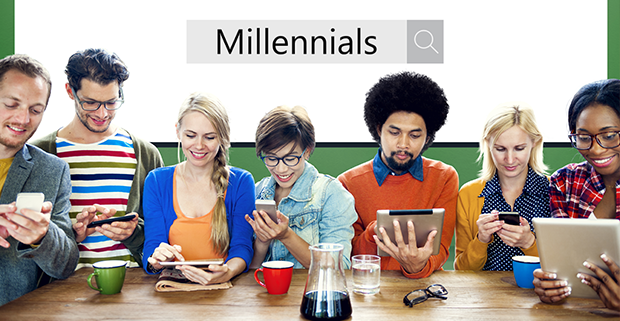
E-commerce
Gestão da cozinha: tecnologia reduz desperdícios e aumenta a lucratividade
Saiba como melhorar os processos e operações do seu restaurante usando as ferramentas certas para isso Um dos principais ingredientes

The Millennials Generation is changing the way of thinking consumption and businesses.
They are eager, seeking news all the time, they are not loyal to brands, they don’t work at the same company for years, they are always connected and prioritize experiences they have instead of owning products. This generation, which was born with access to the digital world, is transforming the way of thinking the economy, consumption and labor relations.
According to a global study conducted by Goldman Sachs and released by Tetra Pak, one of the trends of this generation is the search for meals (food and drink) that are quick and simple. Around 41% of the respondents said they are willing to pay more for a product that makes their lives easier, and that does not mean adhering to junk food. After all, this generation has as main focus the concern with health and quality of life. Another characteristic is that they want to be more sustainable – 53% stated that they would like to do more for the environment.
The survey also points out that, for being the first generation that has contact with the internet since childhood, the millennials are more technology dependent and connected than any other generation. More than 84% of them have smartphone and, with that, they expect the brands to be connected as well. They see the online activity as an important complement to the offline world.
And once they’re in online contact with friends and family, they also communicate with companies digitally. That is, companies have to be prepared to talk to these consumers. One of the reasons that lead companies to pay attention to this audience is the economic potential. Those who were born in 1982 are 34 years old today. At such age many achieve leadership positions in companies and, consequently, increase their purchasing power by earning a better salary.
News and instant gratification
Those who were born after 1982 are used to live the new, that is why every new technology is so well received by this public.
For Jean Klaumann, VP of operations for Linx, a successful connection with this generation is linked to the ability to offer resolutions with as much convenience as possible. “It’s the instantaneous utility, as Fred Wilson (venture capitalist) used to say, that makes people download new apps every day: one to pay bills, another to transfer money, and another one to pay for parking. The success of apps is directly related to your ability to solve problems as quickly and intuitively as possible,” he says.
Multichanneling and empowerment
The strengthening of multichanneling is the most visible trend to shopping malls and their retailers. According to Klaumann, malls have as main focus the individuals moving through them, and to monetize that, one must first know their audience to then being able to please them. “That doesn’t always mean making a purchase; it could just be a search for something that has been purchased online. We should not only help the consumer to locate a particular store, but make available to them all the stores that sell the product they search for, allowing to filter by distance, sale, relationship or what else consumers prefer,” he concludes.
Source and full article: Revista Shopping Centers – Edition 204 – January/February 2016